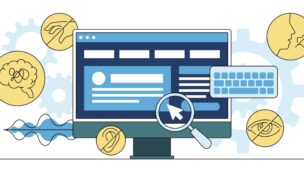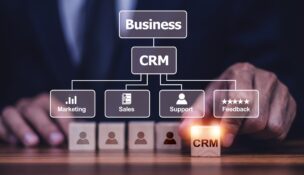The Importance of Embracing Experiential Learning in Modern Business
The experiential learning method is not just beneficial for the present; it’s an investment in the future. But what is 'experiential learning'?
Stefan Cvetkovic //January 16, 2024//


The Importance of Embracing Experiential Learning in Modern Business
The experiential learning method is not just beneficial for the present; it’s an investment in the future. But what is 'experiential learning'?
Stefan Cvetkovic //January 16, 2024//
The ability to adapt and evolve has become crucial for helping organizations stay strong and relevant. Traditional models of business management are being challenged by a world where change is the only constant. This dynamic environment requires more than theoretical knowledge; it calls for a practical, hands-on approach to learning. This is where experiential learning comes into play, emerging as an indispensable tool in modern business practices.
READ: Essential Tips for Starting a Business — How to Ensure Longevity and Sustained Growth
Understanding experiential learning
Experiential learning is a stark departure from conventional educational models. It’s a method where learning occurs through doing. Instead of acquiring knowledge through passive means like reading or listening, experiential learning involves active participation in real-world scenarios. In the context of business, this means moving beyond classroom-style seminars and workshops to interactive, practical and engaging learning experiences.
The relevance of experiential learning in today’s fast-paced business world is profound. It fosters deeper comprehension of work processes, nurtures creative problem-solving abilities and develops critical thinking skills essential for navigating the complexities of contemporary business.
The role of experiential learning in business evolution
Adopting experiential learning is more than just following a trend; it’s a strategic necessity for businesses aiming to stay competitive in a rapidly changing market. Experiential learning fosters a culture of agility and innovation within an organization. Employees learn to quickly adapt to new situations, think on their feet and approach challenges from fresh perspectives. This kind of learning environment is exceptionally beneficial for businesses facing technological disruptions or shifts in market dynamics.
For example, in the tech industry, companies often use hackathons to encourage innovation and rapid problem-solving among their teams. In the retail sector, businesses might implement role-playing exercises to enhance customer service skills. These real-world applications of experiential learning not only make the learning process more effective but also contribute directly to a business’s adaptability and growth.
READ: Navigating the Future — Insights and Advice from Colorado’s CEO Roundtable
Enhancing student experience through experiential learning
Experiential learning is not only transformative in the business world but also in educational settings, especially in enhancing the international student experience. Experiential learning has its application to global education strategies, particularly in addressing how to improve the international student experience.
Universities and colleges are increasingly incorporating experiential learning into their curriculums to provide a more engaging and immersive learning experience for their diverse student bodies. This approach is particularly beneficial for international students, helping them bridge the gap between theoretical knowledge and practical application. It also aids in familiarizing them with different cultural and business environments, enriching their educational journey and preparing them for global business challenges.
Integrating experiential learning into business strategies
Successfully integrating experiential learning into a business strategy requires a fundamental shift in mindset. It’s about creating real-world learning opportunities for employees. This could take the form of internships, project-based learning or simulations that mirror real-world business challenges.
Technological advancements, especially in virtual reality (VR) and augmented reality (AR), have significantly enhanced the possibilities for experiential learning. These technologies create immersive learning environments where employees can practice and refine their skills in a simulated, risk-free setting.
Building an experiential learning culture also involves cultivating an environment where trial and error are not just accepted but encouraged. Such an approach helps employees to learn from their mistakes, develop resilience and become innovative problem solvers.
READ: How the Metaverse is Revolutionizing Industries — From Sci-Fi Fantasy to Digital Reality
Overcoming challenges in implementing experiential learning
Despite its numerous benefits, integrating experiential learning into business operations can be challenging. One significant barrier is the investment of time and resources. Developing and implementing comprehensive experiential learning programs requires careful planning, commitment and resources, with a focus on long-term benefits.
Resistance to change can also pose a significant challenge. Employees and managers accustomed to traditional learning methods might be skeptical about adopting a new approach. To overcome this, clear and effective communication about the benefits of experiential learning is essential. Involving employees in the development and implementation of these programs can also help in mitigating resistance.
The bottom line
Experiential learning in modern business is more than just a learning method; it’s a transformative journey toward creating a dynamic, innovative and adaptable workforce. By embracing this approach, businesses are not merely training their employees; they are nurturing future leaders equipped to navigate the complexities of a constantly evolving business landscape.
As we move forward in this era of rapid change and innovation, experiential learning stands out as a vital tool, guiding businesses toward sustainable growth, adaptability and success. This proactive approach to learning and development is not just beneficial for the present; it’s an investment in the future, ensuring that businesses remain resilient and agile in the face of ever-changing market demands and global challenges.
 Stefan Cvetkovic is a seasoned content creator, link-building specialist and team lead, and a young startup leaders who is always on top of all innovations in the world of technology, marketing, and SaaS. Used to wearing many hats, his experience extends to both technical and people roles – from creating growth marketing strategies to project management.
Stefan Cvetkovic is a seasoned content creator, link-building specialist and team lead, and a young startup leaders who is always on top of all innovations in the world of technology, marketing, and SaaS. Used to wearing many hats, his experience extends to both technical and people roles – from creating growth marketing strategies to project management.

























